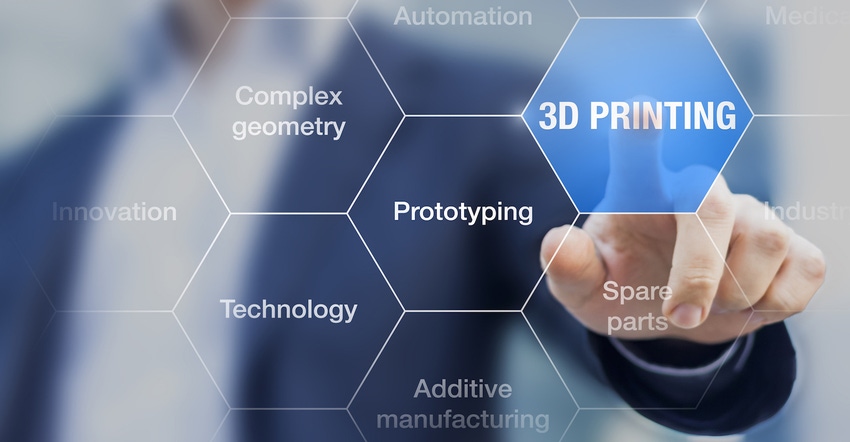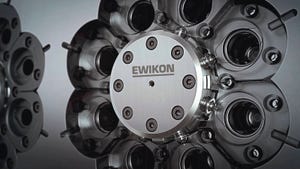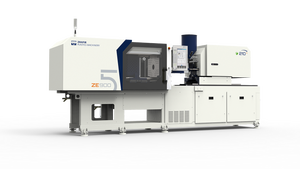Custom molder Diversified Plastics offers multiple ways to help solve customer manufacturing needs, one of which is 3D printing.
November 24, 2020

Whether a part is being 3D printed or injection molded, an effective design strategy will enable iterations and optimizations before manufacturing begins and adjustments become much more onerous. Down the line, it will accelerate time to market and increase profitability. That all hinges on a sound understanding of design for manufacturing (DFM) and design for additive manufacturing (DfAM) principles. Kevin Hogan, CEO of Diversified Plastics Inc. (DPI), will address that and more during Virtual Engineering Week. Hogan is scheduled to speak on Dec. 3 at noon at the event, which runs from Nov. 30 to Dec. 4.
|
Kevin Hogan, CEO, Diversified Plastics Inc. |
“The positive impact of bringing a contract manufacturer into the development phase facilitates speed to market while improving quality and cost efficiencies,” Hogan told PlasticsToday. “Design for manufacturability is a powerful process for plastic injection molding. And design for additive manufacturing is valuable for parts produced using 3D printing,” he added. His presentation at Virtual Engineering Week will explain to attendees what effective DfM and DfAM processes encompass. “We’ll also share successful real-world applications of each process,” said Hogan.
While some injection molders have been wary of additive manufacturing, aka 3D printing, as a potential competitor, DPI has embraced the process. Hogan considers it to be one more tool at DPI’s disposal to better serve customers. “We are able to offer multiple ways to help solve customers' manufacturing needs. DPI can review a part and determine which option is best, based on the customer’s needs and requirements. We have also kicked off projects pursuing both injection molding and additive parts for a specific application,” explained Hogan.
DPI deploys Carbon Digital Light Synthesis
DPI joined the Carbon Production Network in 2018. Established by 3D-printing technology company Carbon, the network allows companies to deploy the Carbon Digital Light Synthesis (DLS) process to print parts with “exceptional mechanical properties, resolution, and surface finish,” according to Carbon. “The Carbon DLS process allows engineers and designers to iterate faster, deliver projects with less risk, and radically re-imagine their products by introducing consolidated parts, impossible geometries, and programmable lattices,” writes Carbon on its website. DPI sees the technology as a valuable addition to its core plastic injection molding services.
“We utilize [DLS] to provide quick-turn production-quality parts where cost and timing of injection molding tooling doesn’t meet customer needs,” explained Hogan. “We created the Acceleration Station brand, powered by Carbon, to provide the ‘Fastest Path to Market.’”
Acceleration Station has created opportunities for DPI that, otherwise, would not have been possible, given the standard lead times and costs associated with injection molding, according to Hogan. Products first produced with Carbon DLS often mature to be suitable for tooling and injection molding, he added.
He cites, as an example, DPI’s participation in the development of a critical part for a ventilator in April of this year. “From first contact to final part was a total of 14 days — including six design iterations,” said Hogan.
Indeed, medical technology is one area where the Carbon DLS process brings unique capabilities, according to Hogan. Specifically, he cites “its technology design, the wide range of resins — including MPU 100, which is designed for medical applications — and the validation protocols in its software.” DPI has printed a range of parts for medical applications, including a heart valve implant surgical device, IV prep components, micro-fluidic systems, guided catheter assemblies, and hearing aids.
The session, “Speed Time To Market and Increase Profits with Advanced Design For Manufacturability Techniques” led by Hogan, is one of several that addresses the use of 3D-printing technology in medical and other applications during Virtual Engineering Week. You can find the full schedule here.
About the Author(s)
You May Also Like





